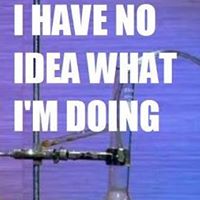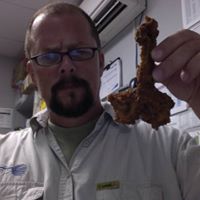Leaderboard
Popular Content
Showing content with the highest reputation on 04/07/2011 in all areas
-
That's weird that they limit the number of services you can be a member of / be employed by. Let me tell you, if I didn't have four jobs I couldn't support myself. Now for my take on your real question. No, you should not take the AEMT program. Go straight to Paramedic. That being said, I don't think you should spend 19 years as an EMT before becoming a Paramedic. There are, as you stated, various reasons for and against going straight to Paramedic school. My suggestion is, find out how long the Paramedic program is for you. Research a few different programs in your area, if there is more than one within driving distance. Most importantly, find out whether they are certificate programs, AAS degree programs, what the prerequisites other than EMT certification are, etc. My advice is that next semester you should start taking prerequisites for Paramedic school, then when you've finished those, go straight into the core Paramedic content. That will give you a year or two on the road as an EMT, and put you head and shoulders above the rest when you start the Paramedic class. Of course, if the local Paramedic program blows the average program out of the water, it won't be necessary... but I digress. I would suggest the following classes. College composition - at least 1 semester, 2 semesters if possible [For most Paramedic students, being taught how to write isn't a bad idea. I am a QA auditor for my local Paramedic program, reviewing the students' mock "PCR's". Most everybody on here would be appalled at what SOME people turn in as a chart. If they write like that when they are working on the road, I'm surprised we as a profession don't get sued even more often than we already do. That being said, your posts seem to be well thought out and generally free of significant grammar or spelling errors. Keep it up and reflect that in your PCR writing] College-level algebra, and any math classes you need to get you up to speed for algebra if you didn't do well in Math in High School College Biology 1-2 semesters (whatever is considered a prerequisite for A&P 2 SEMESTERS OF COLLEGE LEVEL ANATOMY AND PHYSIOLOGY [i really wish I had this myself, it would make me such a better provider - I plan to take it eventually] College Chemistry Micro/Cellular Biology [some schools offer a 1-2 semester class called "Biochemistry for Health Science Majors" or something like that - often used for nurses. It will teach you what you really need to know to have a good foundational knowledge so you can later understand pharmacology. If a class like this is offered, it could take the place of the Biology, Chemistry, and Microbio classes. Of course, you still would need to take any prerequisites for A&P - if there's any ONE thing on my list to take, it's A&P] I know it seems like a lot of coursework, but it WILL make you a better provider. If it were up to me, all of these classes, or a reasonable equivalent, would be required to even start the Paramedic coursework. Preferably all incorporated in a 4-year Baccalaureate degree. But at least for now, I'm dreaming. If anybody has any addition/substitutions/corrections to my list of suggested coursework prior to starting Paramedic class, feel free to chime in. I don't pretend to be a definitive source.2 points
-
Is there anyone out there that can help me or knows someone who can. I am based in okinawa im a navy corpsman based w/ marines. In okinawa there is no Paramedic program, nor does anyone in the military really care to help you out if you are. I set up my own program and worked directly under a LCDR in the ER and took an emt-basic refresher. Soon as i returned from the ER I was told I was going to afghanistan although i still needed a few signatures, one way or the other I had to hand it off to my Leading petty officer at my clinic w/ instructions on how to mail it. Anyway NREMT got it and returned it saying there were things missing (while im in afghanistan) my LPO went to our doctor and got the rest done and sent it off. NREMT never got it.. then I told him to just mail it to my mother and she'll take care of it. she never got it. Long story short Im back from afghan no record of my recert around and its been a year.. NOT TO MENTION in okinawa its impossible to recert. Is there any law or protocol for something like this, am i really to blame for serving over seas and in afghanistan? Taking time off to take a real legit refresher in the states was NOT an option. Please if anyone can help I'd greatly appreciate it.1 point
-
Only in as much as you will find it harder to meet the demands of school versus home life. But you will get through it at the end of the day because you are determined and keen for knowledge. Besides, a little life experience can be a very positive advantage in our line of work. Try, by the way, to aim as high as you can when going to school. Nothing less than an Associate's Degree as this provides the absolute minimum in critical thinking and reasoning skills that you will need to be a practitioner that is tuned into the individual needs of your patient. Which is the opposite of a cookbook medic. Carl.1 point
-
Welcome to the job, MetalMedic You have a great question that nearly every new EMT who wants to be a paramedic struggles with for a while. . . I personally believe that having time to build road skills prior to attaching a -P is not only helpful, but vital. . . Getting into the feel of the job before having the full weight of responsibility for each and every call you're on as a paramedic is very important. . . It's not that the job is necessarily hard, but there are a lot of elements to the job, and if you don't have a solid background in basic skills on the bus and in BLS patient interaction, you will be a woefully lacking ALS practitioner. . . There will be times in your career where no level of advanced skills can save a situation, and having the stability of nerve and mind that comes with time will be your only salvation. . . It is a huge thing to be the paramedic on a call, since as the highest qualified practitioner, you are not only in control, but responsible for the outcome, and having some time under your belt to build the necessary fortitudes before being the one everyone else will depend on is absolutely invaluable. . . I personally spent 2 years as a -B grunt before entering the -P class, and it was the best thing I could have done. . . I feel that not only were my BLS skills second nature, but the essentials of patient interaction were honed and I was a much more patient oriented medic when I graduated with my -P. . . I was also able to develop firm nerves and an ability to calmly remove emotion and control a situation, which came in very helpful when I entered TEMS. . . There are a lot of good medics out there that know their -P skills back and forth but are unable to connect with their patients and use the 6th sense that solid, focused time in BLS can foster, because they have been just skills medics from the get-go. . . As much fun as having advanced skills is, the job is less about the skills, more about the person with the skills, and ultimately about the patient. . . If you are so busy practicing didactic knowledge and lab skills, you're going to miss the information the patient isn't telling you that a little time in BLS will teach you to read and intuitively feel. . . I feel that if your goal is paramedic, the "ladder" approach of going B-I-CC-P could be a waste of time and money, and will likely do little more than frustrate you as you spend years between stages when you could just be where you want to be. I'm not sure where you are, but in Upstate NY where I took my -P course, they offered an advanced paramedic program that was basically between standard -P and PA. . . It takes about 5 months longer, but you're much more skilled on the other side, and it's definitely worth the time, and you'll have more road time to acclimate to the job before operating as a -P. . . If you're aching to get going with the schooling, I might suggest enrolling in an Emergency Services Management course, which is offered by many schools that offer -P courses. That will give you 2 years of school time to run BLS calls while in school, and on the other side you'll have an AAS (some have 2 year BS degrees) and your -P, and should you decide to go into a regional or federal EMA, a degree in ESM will be invaluable. Just a thought. Good luck to you!1 point
-
You have definitely asked a question that is a huge controversy, at least in my neck of the woods. But, my recommendation follows pretty much what Chris has stated. If you are in no hurry and can spend some time in the field, then I would do that. Not only will it make you a better paramedic in the end, it will also help you to get a job. As to getting your AEMT, I actually think it might benefit you although I got my intermediate 1 year prior to getting my paramedic and only used that level 2-3 times. That being said, it was 2-3 times more than had I not. Not to mention, I would not have passed up taking the national registry which made going through the skills testing at a paramedic level less traumatic. I also recommend you get as many of the pre-reqs done up front. You will find the program to be a little to easier to understand/comprehend. (I had my Math/English completed, but struggled with doing pharm/A&P as co-reqs). As to how long to stay at the basic/intermediate level...only you can determine that one. I spent 2 years as an ECA before moving to Basic. Spent 2 years before becoming an Intermediate. So, by the time I graduated the program, I had 6 years under my belt. Now, I've been a paramedic for 1 year but I have 7 years of service. I think it's fantastic that you are looking at what will make you a better medic and less at how soon you can get a paying job. It's good you are in a position to make that decision. Good luck on whatever you decide.1 point
-
Actually the suppression of emergence phenomenon with benzodiazepines is a myth. There are two direct studies into this, neither found a difference in the emergence phenomenon when midazolam was adminstered concurrently. Well, one did, but it was not powered to detect a significant difference. Certainly midazolam is recommended if emergence occurs, but it won't stop it occurring. Wathen JE, Roback MG, Mackenzie T et al. Does midazolam alter the clinical effects of intravenous ketamine sedation in children? A double blind randomized controlled emergency department trial. Ann Emerg Med 2000;36:579-588. Sherwin TS, Green SM, Khan A et al. Does adjunctive midazolam reduce recovery agitation after ketamine sedation for pediatric procedures? A randomized double blind placebo controlled trial. Ann Emerg Med 2000;35:229-238. McCarty EC, Mencio GA, Walker LA, Green NE. Ketamine sedation for the reduction of children's fractures in the emergency department. J Bone Joint Surg Am 2000;82-A:912-18 Green SM, Rothrock SG, Lynch EL, et al. Intramuscular ketamine for pediatric sedation in the emergency department: safety profile in 1,022 cases. Ann Emerg Med 1998;31:688-97 Green SM, Johnson NE. Ketamine sedation for pediatric procedures. Part 2: review and implications. Ann Emerg Med 1990;19:1033-46. Green SM, Kuppermann N, Rothrack SG, Hummel CB, Ho M. Predictors of adverse events with intramuscular ketamine sedation in children. Ann Emerg Med 2000;35:35-42.1 point
-
Obviously English is not your first language. Haitian is a national origin, not a race. Your racist assumptions have no place in this forum, so STFU.1 point
-
1 point
-
Content removed because I was just being an asshole... :-) There was nothing productive here..1 point
-
New EMT-B, been with a private company for the last 7 months or so. Mostly tx's, but we have contracts with facilities that often call us when they should call 911. Lots of nighttime calls for falls, fevers, NVD, and psychs. In the beginning I got labeled "flashlight guy" for having a small surefire on me, but the same medics that gave me the name are the ones who always ask..."hey, let me borrorow your light for a sec." Picked up and took off gear as needed for the first few weeks or so, untill I got down a managable amount with out seeming too whackerish. Some of the unconventional items I carry I chose because of a problem I encountered and I dont want to be without something I need twice. Ill list whats in my pockets with a little explanition of why, or why that particular item. Shirt: Notepad-for taking call info. In the back, I list door codes for various hospitals and facilities. Pen- Zebra F-701. Stainless Steel, $7, clicky pen. Nice heft, can soak with sanitizer if it gets gross, costs enough I dont lose it, but not so much if I do Ill miss it too much. Belt: Glove Pouch (holds 2 prs, always having to give a pair to my partner) Surefire Aviator. Good for dark rooms, injury inspection. Has a bright white light, and a low output red light, good for using in the cab at night so as not to blind the driver. Pants: Folding knife (Spyderco or SOG) Right cargo pocket: Littmann Classic II, penlight, sharpie (The stainless steel one for no other reason than its awesome) Shears. Firefighter Shove Knife. Think mini Slim-Jim, $5 on Ebay. On the occasions when we do get emergency calls and are stuck outside waiting for some lazy Haitian CNA to waddle down the hallway and let us in, its nice to be able to pop most doors we encounter. Its also nice to be able to open the supply closet at the base where they keep the pens, that I hand out to nurses to curry favor. Left Cargo: Small bottle hand sanitizer, these are often found in the patient gift baskets at hospitals. Extra gloves. Door Wedge. I get a lot of crap for this, but it has come in handy many times. Use it to prop open locked doors when we have to go in and out of a facility, when are short hands to hold a door open for a stretcher, and to wedge under the gas nozzle when pumping gas in the cold. Homemade, wedge with a hook on it. Back Pocket: Leather gloves for outdoor work, cold, and combative patients. O2 Wrench. Add to that the usual cell phone, wallet, etc, and Im still not to weighed down. The stuff I didnt need I jettisoned, this is the stuff Ive stuck with and get use out of almost daily.0 points
-
-1 for your racist comment which has no place in this forum. (Really, do you feel your post benefited from giving the CNA a race?)-1 points
-
D- back to the matter- you were apparently fired over this, and now a complete stranger agrees with the outcome. Wake up.... It is this attitude, that gets paramedics in hot water and you are living proof.....-1 points
-
If you people can't find a procedure that has been going on since 2008, then you all need some help.. The problem Here is we have a person here that can't face the fact that he was wrong. Hopefully you are not around myself or my loved ones....maybe someone should buy you a holster so you can wear that EZ io gun all day long...people like you are the reason why procedures like RSI are not available to educated paramedics...-1 points
-
Again, ass clown, you were terminated for this wonderous action that you saved the day with..OBVIOUSLY you were right all along!! I am pretty sure it happend for good reason, yea- your former boss had a brain!! Kudos to your former boss buddy, tell him I said thanks, he did that town a favor. Do yourself a favor, put the gun away and get the books back out jackass..-1 points
-
Would you have been happier if I stated that the comment by the poster came off as ethnocentric, or derogatory towards Haitians? Either way, the point was made, and I would respect yours much more if you had not felt the need to take to insulting me in your post. Also, STFU, really? I thought this was a professional forum...-1 points







